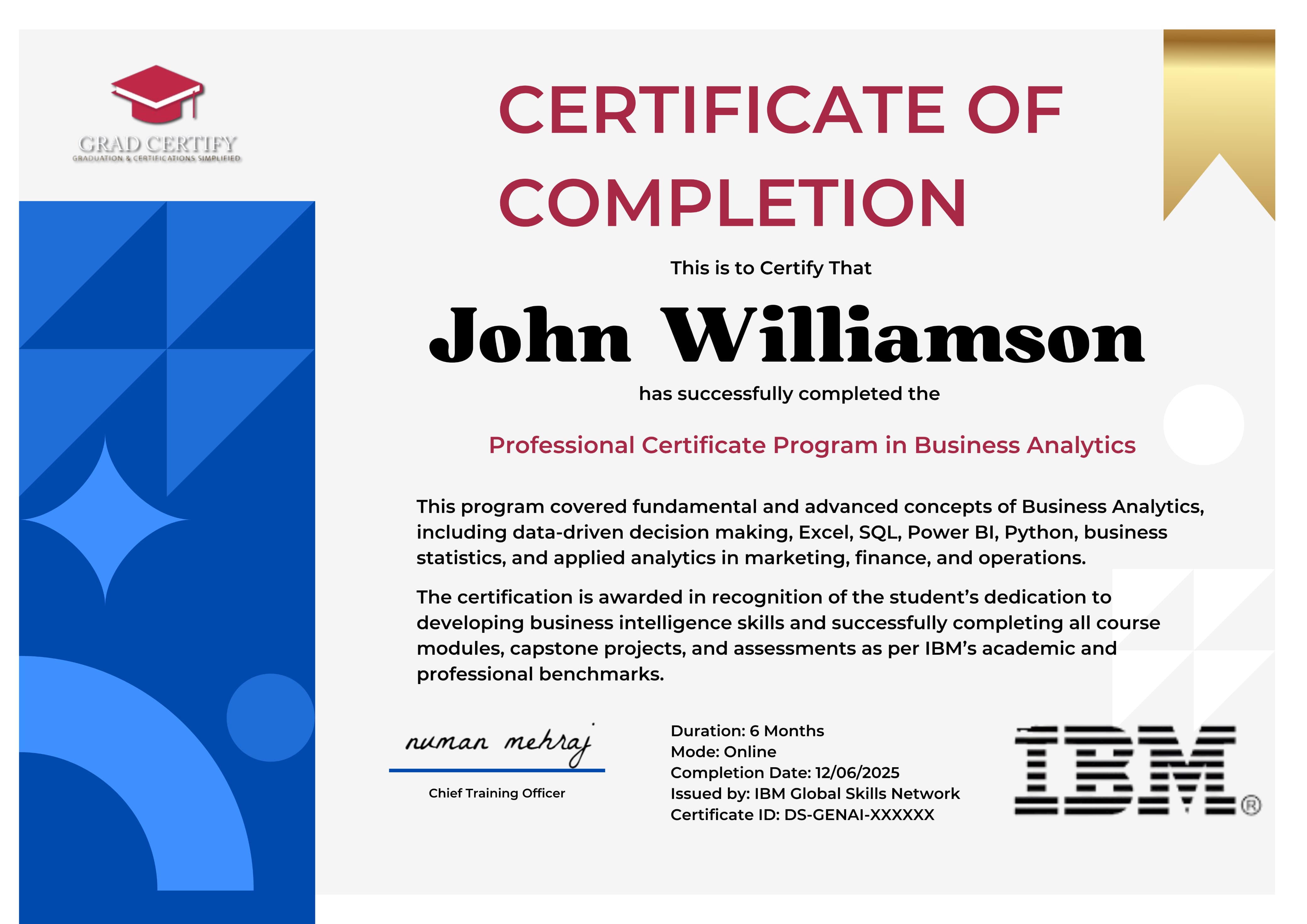Course Outline
Module 1a: Foundations of Business Analytics & Data Science?
Business problem framing, KPIs, Excel modelling, basic statistics,MySQL, distributions, hypothesis
testing, A/B testing.
Module 1b: Data Visualization & Case Studies?
Visualization Best Practices & Perception, Choosing the Right Chart, Introduction to Tableau and
Power BI, Building Interactive Dashboards, Data Storytelling Frameworks, Advanced Visualization
Techniques.
Module 2: Data Warehouse for AI
Data is the foundation for Artificial Intelligence models. Generative AI models rely on large
amounts of high-quality data to learn patterns, relationships, and structures. Understanding various
data stores helps students appreciate how data is stored, managed, and retrieved. This data is
usually stored in a variety of data stores viz. relational databases, NoSQL databases, data lakes.
Knowledge of these data stores will enable students process various data formats
Module 3: Python Crash Course for GenAI
Learn basic Python required for GenAI- Data Types, Flow Structures, Data Structures, Functions,
Libraries, Python in Data Science.
Module 4: Machine Learning Basics
Supervised and unsupervised learning, time series analysis, churn prediction, forecasting. Examples
include sentiment analysis for customer reviews.
Module 05 – Neural Networks & Deep Learning
Understand the transition from traditional machine learning to neural networks and deep learning and
their common applications.
Module 6: Introduction to LLM & Prompt Engineering
You can use LLM for content creation, computer programming, problem solving, dataset generation, and
learning. In this model, you will learn how to effectively leverage LLM to improve your
productivity. You will learning basic prompting strategies such as setting the context, role
prompting, and tuning model settings. You will also learn advanced prompting methods such as
chain-of-thought (COT) prompting.
Module 7: Building your own AI agents
Supervised and unsupervised learning, time series analysis.






 & More
& More
